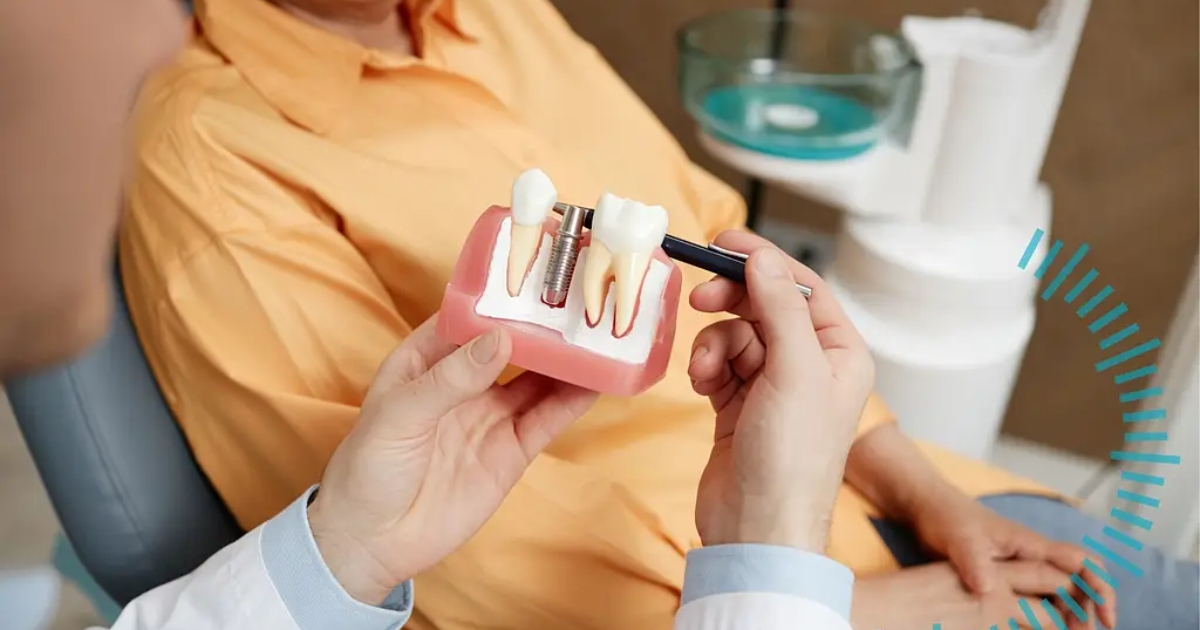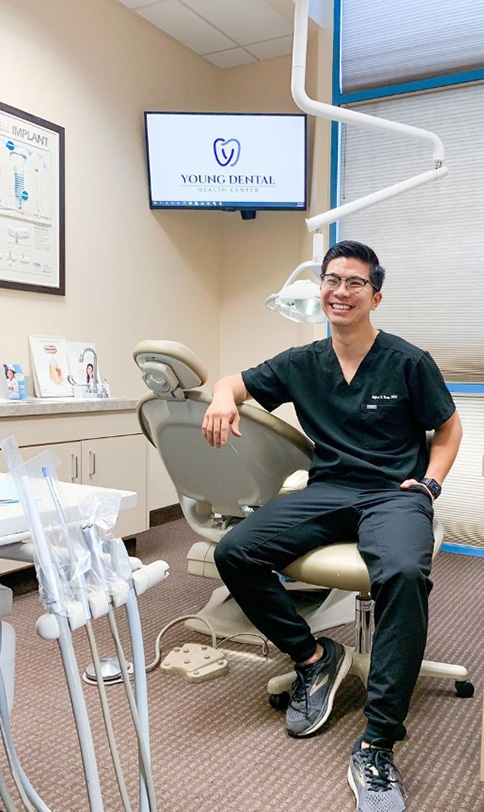E-mail Us
Important Benefits of Choosing Dental Implants Over Dentures
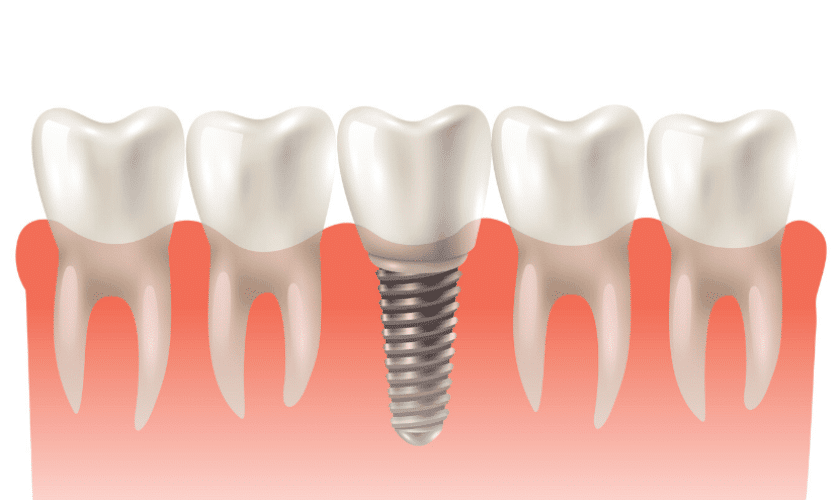
When faced with the loss of teeth, individuals often find themselves considering two primary options: dental implants and dentures. While both serve the fundamental purpose of restoring function and aesthetics, implants offer numerous advantages over traditional dentures, making them a superior choice for many patients. Here, we will delve into the key benefits of choosing the implant option over dentures, exploring how implants can significantly enhance one’s quality of life.
Dental Implants vs Dentures
1. Superior Aesthetics and Natural Appearance
Dental implants are designed to look, feel, and function like natural teeth. The implant itself, usually made of titanium, serves as an artificial root, which integrates with the jawbone. A crown, custom-made to match the surrounding teeth, is placed atop the implant. This seamless integration not only ensures a more natural appearance but also eliminates the artificial look often associated with dentures. For those concerned about their smile and overall facial aesthetics, dental implants provide a solution that closely mimics the appearance of natural teeth.
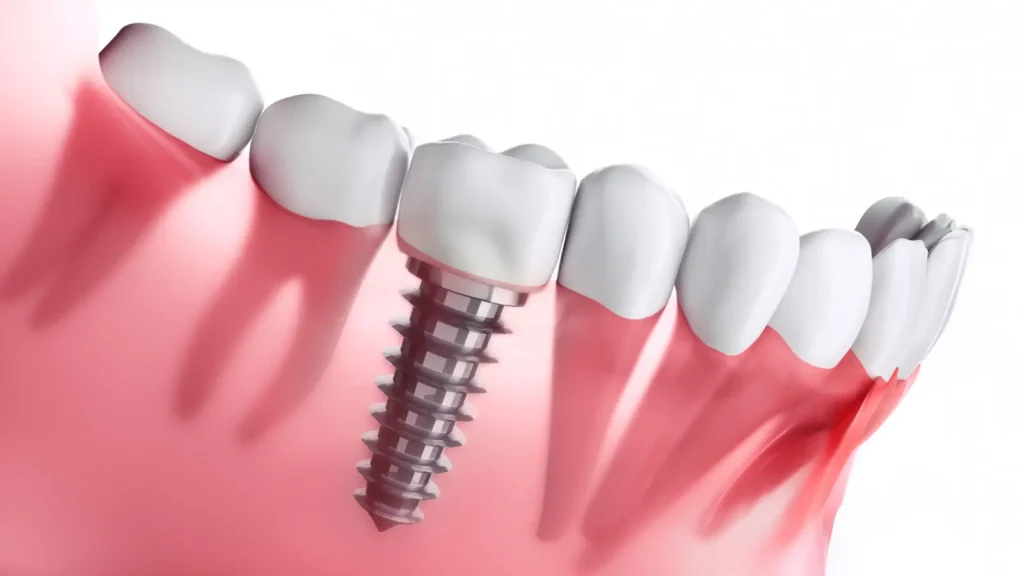
2. Enhanced Comfort and Functionality
Unlike dentures, which can slip and cause discomfort, dental implants are securely anchored into the jawbone. This stability means that patients can eat, speak, and laugh with confidence without the worry of their dentures shifting or falling out. The comfort provided by implants is unmatched, as they do not press on the gums or cause irritation. This secure fit also allows for a wider variety of foods to be enjoyed, contributing to better overall nutrition and health.
One of our patient said
“Since getting my dental implants, I can eat anything I want without discomfort, I can smile confiedently. It’s like having my natural teeth back!”
– Jane D.
3. Improved Oral Health
Dental implants play a crucial role in maintaining oral health. When a tooth is lost, the surrounding bone begins to deteriorate due to lack of stimulation. Implants mimic the function of natural tooth roots, providing the necessary stimulation to the jawbone, thus preventing bone loss and preserving facial structure. Additionally, implants do not require the alteration of adjacent teeth, as is often the case with traditional bridges, allowing patients to maintain more of their natural teeth.
According to a study published in the Journal of Dental Research, dental implants have a success rate of over 95% after ten years, highlighting their effectiveness in maintaining oral health.
4. Durability and Longevity
One of the most significant advantages of dental implants is their durability. With proper care, dental implants can last a lifetime, offering a permanent solution compared to dentures, which typically need to be replaced every 5 to 10 years. This longevity not only provides peace of mind but also proves to be a cost-effective investment over time. Patients can enjoy the benefits of dental implants for many years without the inconvenience of frequent replacements.
Several studies have revealed that patients have admitted that their dental implants work perfectly and excellently even after 10-15 years of treatment. Regular check-ups and good oral hygiene have ensured their longevity.
5. Convenience and Maintenance
Dental implants require the same care as natural teeth. Here’s the easy to maintain step-by-step guide:
- Brush twice daily with a soft-bristle toothbrush.
- Floss daily to remove plaque between the implants.
- Visit your dentist regularly for professional cleanings and check-ups.
Unlike dentures, which need to be removed for cleaning and soaking, implants are a fixed solution that eliminates the hassle of daily maintenance routines. This convenience allows for a more straightforward oral hygiene routine and reduces the risk of infections or gum disease that can be associated with poor denture care.
6. Preservation of Facial Structure
Tooth loss can lead to changes in facial structure, causing the face to sag and making a person look older. Dental implants help preserve the natural contours of the face by preventing bone resorption and maintaining the structure of the jaw. This preservation is vital for both functional and aesthetic reasons, helping individuals retain a more youthful appearance and better overall facial harmony.
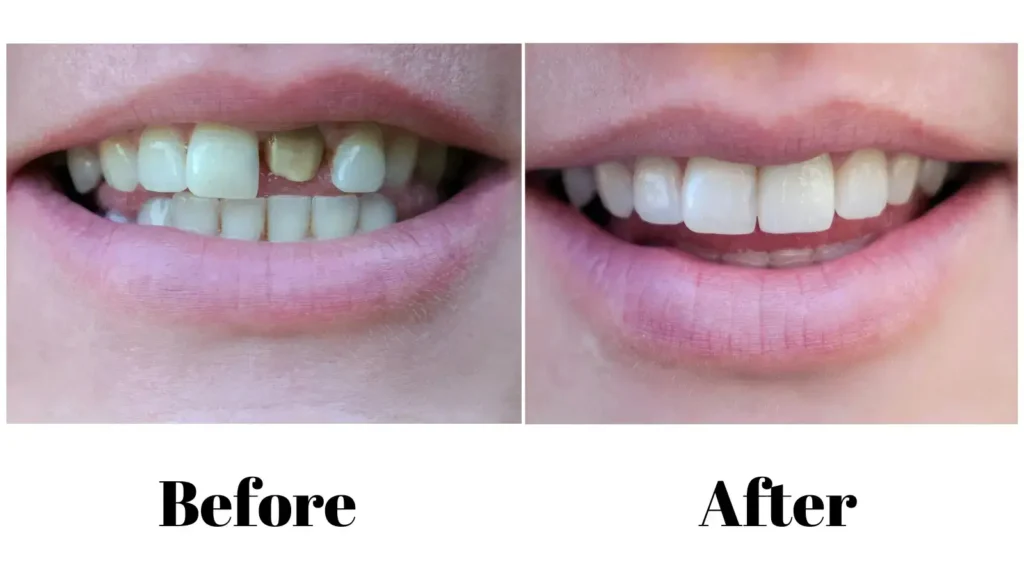
7. Improved Speech
Dentures can sometimes affect speech, causing mumbling or slurred words due to the movement of the dentures. Dental implants, on the other hand, function like natural teeth, allowing for clear and precise speech. Patients do not have to worry about their teeth slipping when they talk, which significantly boosts confidence in social and professional settings.
8. Boosted Self-Esteem and Confidence
The psychological impact of missing teeth can be profound, affecting self-esteem and confidence. Dental implants restore a complete, natural-looking smile, which can dramatically improve one’s self-image and overall quality of life. The ability to eat, speak, and socialize without discomfort or embarrassment allows individuals to engage more fully in their personal and professional lives.
9. Support for Adjacent Teeth
When a tooth is lost, the surrounding teeth can shift towards the gap, leading to misalignment and bite issues. Dental implants fill this gap and provide support for adjacent teeth, preventing them from shifting and ensuring a balanced bite. This support helps maintain proper alignment and prevents further dental complications.
10. Predictable and Successful Outcomes
Dental implant procedures have a high success rate and are considered predictable with reliable outcomes. Advances in dental technology and techniques have made implants a safe and effective option for most patients. The predictability of the procedure, combined with the long-term benefits, makes dental implants an attractive choice for those looking to restore their smile.
According to the American Academy of Implant Dentistry, dental implants have a success rate of up to 98%, making them one of the most reliable options for tooth replacement.
11. No Dietary Restrictions
Dentures often come with dietary restrictions, as certain foods can cause them to dislodge or break. With dental implants, patients can enjoy a varied diet without worry. The strong and stable nature of implants allows individuals to eat crunchy, chewy, and hard foods that would otherwise be problematic with dentures. This freedom contributes to better nutrition and a more enjoyable dining experience.
12. Reduced Risk of Gum Disease
Poorly fitting dentures can create pockets where bacteria can thrive, increasing the risk of gum disease. Dental implants, however, fit snugly and securely, reducing the likelihood of bacterial buildup. Proper oral hygiene practices with implants can help maintain healthy gums and prevent periodontal issues.
While dental implants have many benefits, it’s important to be aware of potential risks such as infection, nerve damage, or implant failure. These risks can be minimized by choosing an experienced dental professional and following post-operative care instructions carefully.
Conclusion
The decision to choose dental implants over dentures offers numerous benefits that extend beyond aesthetics. From improved comfort and functionality to enhanced oral health and confidence, dental implants provide a superior solution for tooth replacement. The long-term durability and convenience of implants further highlight their advantages, making them an excellent investment in one’s overall health and well-being. For those considering their options, dental implants represent a modern, effective, and life-enhancing choice that can restore not only their smile but their quality of life.




